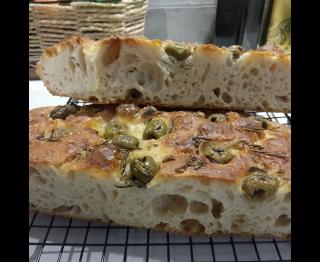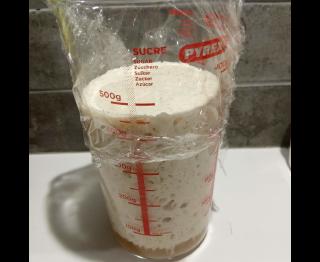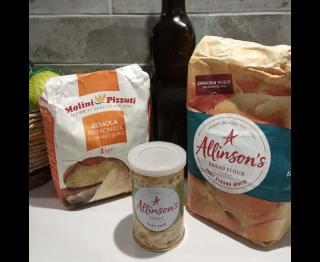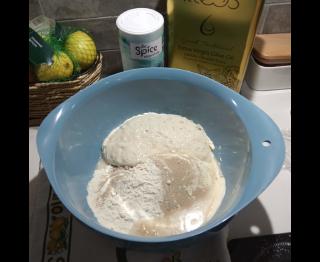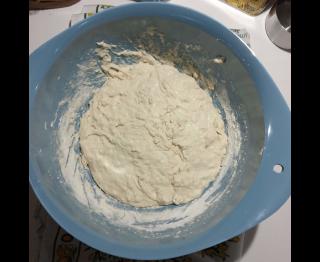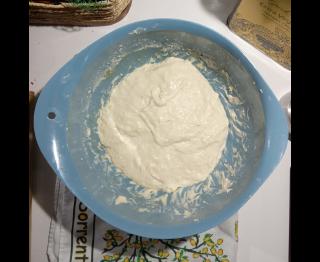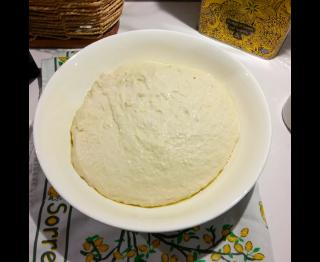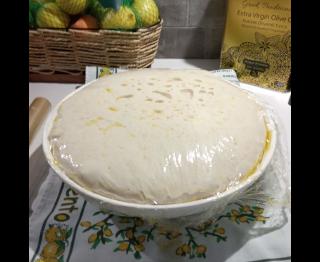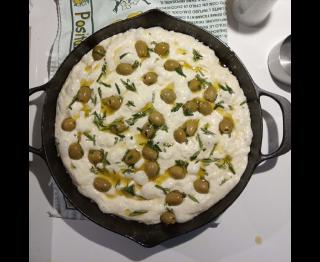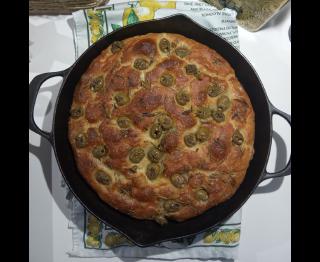- Serving
- Overnight Poolish
- Flour, semolina and yeast
- Combine ingredients
- Mix and leave for 30mins
- Add salt and oil, then fold
- Let rest for 60mins then fold again
- Prove for at least another hour
- Place in pan, add toppings
- Bake for about 40mins
The pre-ferment
- 1 cup of strong bread flour (120g/4.2oz)
- 1 cup of water
- a pinch of dried yeast (a scant 1/4 teaspoon)
- a pinch of sugar (optionally)
The evening before baking, mix together the above ingredients well, cover and leave but don’t refrigerate.
A pre-ferment will help with the dough’s “extensibility”, ie. gluten formation. It will also improve both final taste and shelf life. This is a poolish because it has equal quantities of flour and water and so is relatively liquid. A biga is a pre-ferment that uses less water.
Mix (autolyse)
- the poolish
- 1 cup of semolina flour (120g/4.2oz)
- 2 cups of strong bread flour (240g/8.4oz)
- 1 level teaspoon of dried yeast
- 1.5 cups of water (approx.)
Mix everything together roughly with a fork or spoon. Use enough water to bring it together. Leave for half an hour.
Salt, Fold and stretch
Add a generous teaspoon of salt and a tablespoon of olive oil.
Keeping the dough in the bowl, fold and stretch it with a wet hand or spatula until it becomes elastic and “of a piece”.
Leave for an hour.
Second fold and prove
Fold and stretch again and place in an oiled bowl or container.
Cover the bowl/container - if using cling film, rub olive oil on it or it can stick.
Leave to prove for about 2 hours.
Dimple and Top
Gently release the dough from the proving container on to the baking tray.
Dimple the dough with wet or oiled fingers.
Add olive oil, rock salt and water in a bowl and mix, then add chopped rosemary and olives and mix again. Pour this over the dough as evenly as possible.
Bake
Guidelines based on a non-fan oven. Might need to adapt for a fan oven.
Bake at 250°C for 10 mins.
Reduce oven to 220°C and bake for another 30-40 mins.
Place on a wire rack to cool.
